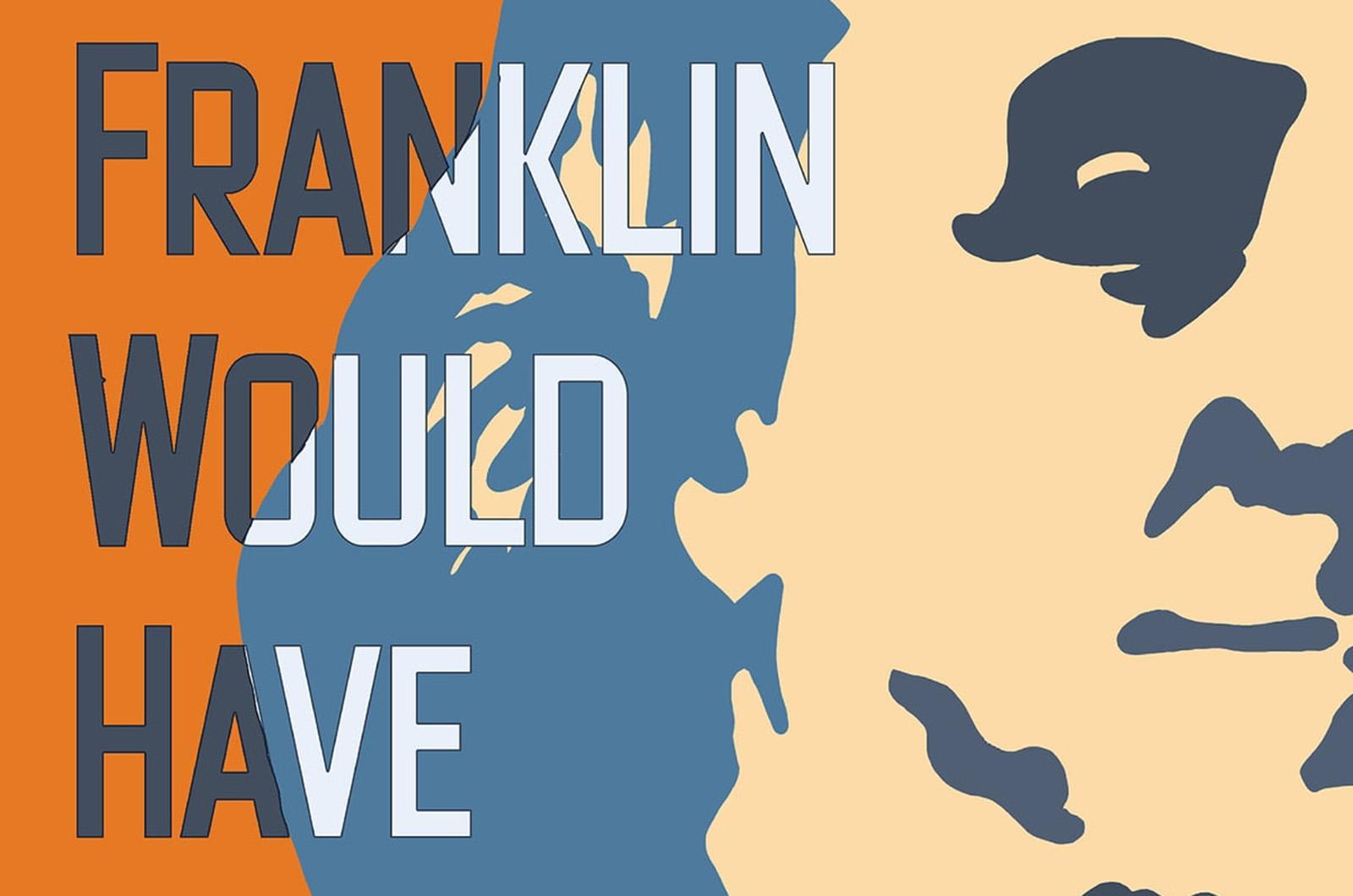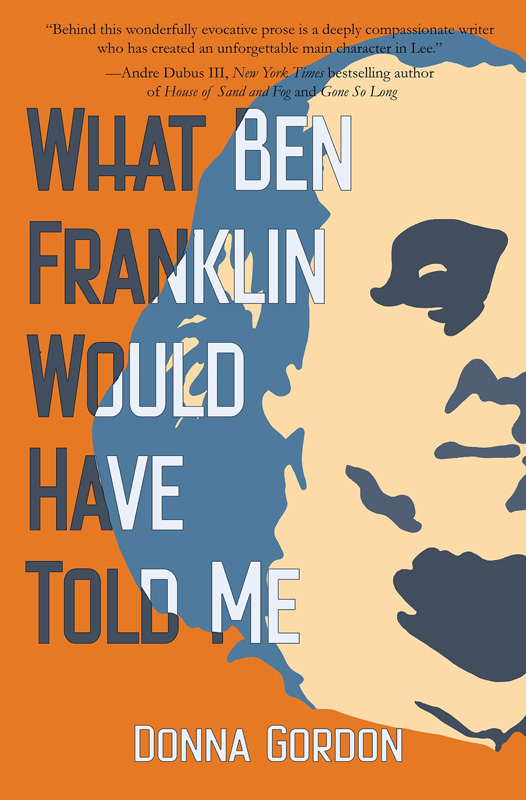What Ben Franklin Would Have Told Me, by Donna Gordon, Regal House Publishing 2022, 319 pages, $19.95.
At the heart of Chilmark summer resident Donna Gordon’s novel is 13-year-old Lee Foster, who’s lively and funny and full of the spirit of adventure. He’s also a progeria patient, although he’s so alive on the inside that he occasionally forgets his affliction. “Sometimes he forgot that he looked like a 102-year-old man,” the narrative tells us, “trapped in a kid’s body.”
That was what his affliction, Hutchinson-Gilford progeria syndrome, did to its victims, we’re told: “decayed you from the moment you were born — causing the cells in your body to age at a super accelerated rate.” That accelerated rate, Lee reflects, is “about the same as a cat, but half as quickly as a zebra, and not nearly as fast as a fruit fly or a mouse.” Lee is three feet tall and weighs only 35 pounds. He has false teeth, arthritis, heart disease, and he’s “as bald as the bird on the back of the dollar bill.”
Hovering over all these details is the final and worst one, something Lee shares with the handful of other Hutchinson-Gilford progeria in the world (including his friend Kira Throop, “his would-be sort-of girlfriend if adults ever saw fit to leave them alone for more than five minutes at a time”): a tragically shortened life expectancy. This detail has seeped into the very atmosphere of the Newark, N.J., home where Lee is cared for by his mother Cass and his new caretaker, an Argentinian man named Tomás Concepción, Lee’s “personal Jack-and-the-Beanstalk giant.” Lee’s father Neil no longer lives with the family, driven off by “how stressful it was to live with someone who was always on the verge of a life-and-death crisis.”
Even beyond the normal wishes — being healthy, growing up — Lee has a dream, and it involves his personal hero, Ben Franklin. In a charming reflection of Lee’s own indomitable personality, readers learn the origin of his admiration of this most complex of Founding Fathers: “What he liked most about Ben was that he never gave up, not once, ever,” readers are told. “What he didn’t have, he managed to invent — from bifocals to the postage stamp. He could have probably done anything, even changed the direction of time.”
From this admiration, Lee evolves a plan. He and Tomás will fly to DC, explore the Capitol — the story is set 40 years before the Jan. 6 insurrection — then travel on to Philadelphia and visit the Franklin Institute. But as Ms. Gordon steadily, confidently complicates the plot, Tomás, looking for his wife and baby girl, occupies more and more of the center stage. And as Lee’s relationship with Tomás deepens and becomes funnier and more touching, readers themselves are drawn deeper into the tension between Lee’s adventures and his precarious fate.
The author turns these disparate elements into a surprisingly touching tale about the complexities of both histories, personal and national. “The history of this country is like a puzzle,” readers are told at one point, and the novel wonderfully brings home the truth of it by having Lee learn more about both himself and one of the most alarmingly human great figures in American history.
And in what is by far the novel’s most pleasing twist, Lee himself is alarmingly human in the course of these pages. It would have been an easy temptation to write this character as a Hollywood-style saintly little imp, but Ms. Gordon wisely opts instead to flesh him out into one of the most remarkable characters readers are likely to encounter in a month of reading fiction. Lee’s generous spirit infuses the novel at every level, transforming one of its mottos — “the world gets what the world gives” — into a memorable little anthem.





Comments
Comment policy »